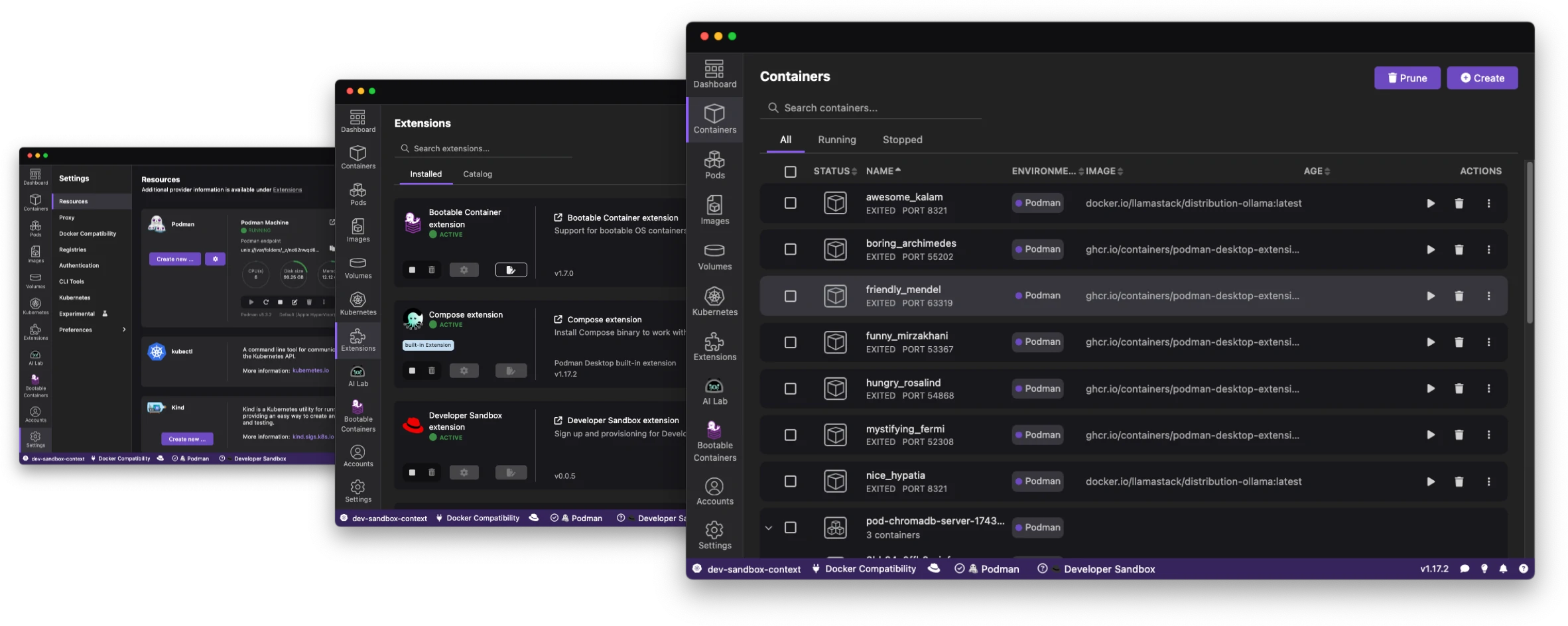Podman Desktop seemed great until I hit production issues. First, it randomly decided to eat 4GB of RAM just sitting there. Then during a client demo, it took 45 seconds to start a simple container. The final straw was when it broke my Docker Compose setup during a critical deployment.
Container tools are supposed to make development easier, not harder.
The Real Problems People Don't Talk About
It's Slow on macOS: Podman Desktop on my M2 MacBook Pro feels like it's running through molasses. OrbStack starts containers in like 2-3 seconds while Podman Desktop takes forever - I've timed it at 18-23 seconds for the same damn container. The performance comparison data from Paolo Mainardi's 2025 benchmarks confirms this isn't just my machine - it's a consistent pattern across different hardware configurations.

Memory Hog: Even when idle, Podman Desktop keeps like 2.8GB of RAM hostage on my machine. Colima uses maybe 400-500MB and actually releases memory when you're not using it. I'm probably biased toward Colima because I spent a whole weekend configuring it.
Kubernetes is an Afterthought: The K8s support feels bolted on. Rancher Desktop was built for Kubernetes development and it shows - everything just works instead of fighting you at every step.
Updates Break Things: Version 1.1.0 threw Error: container not found for existing containers after upgrade. Version 1.2.0 changed the CLI flags and suddenly podman-compose up became podman compose up - no backwards compatibility. Finch has stayed stable for 8 months running the same configs without randomly changing commands.
What Actually Matters When Choosing
Forget the marketing bullshit. Here's what matters in real development:
Startup Time: If your container takes longer to start than your coffee takes to brew, you're using the wrong tool. OrbStack benchmarks claim 2-second cold starts vs 20+ seconds for alternatives - I've seen closer to 3-4 seconds but that's still way better than Podman Desktop. Colima's lightweight VM approach hits similar performance most of the time.
Memory Usage: Your tool shouldn't need more RAM than your actual application. Lightweight tools like Lima and Finch use like 200-600MB instead of the 2-4GB monsters. Activity Monitor screenshots show OrbStack barely touching CPU when idle.
Reliability: Does it work the same way tomorrow as it does today? Docker Desktop is slow but at least it's predictably slow. Podman Desktop has good days and bad days. Check the GitHub issues - random crashes and networking failures are common themes.
Platform Integration: On macOS, use macOS-native tools. On Linux, use Linux-native tools. Cross-platform "solutions" usually suck on all platforms equally. Apple's Virtualization Framework enables native performance for tools built specifically for macOS instead of lowest-common-denominator approaches.
The tools I actually recommend solve specific problems instead of trying to do everything poorly. Pick the one that fixes your biggest pain point right now.
